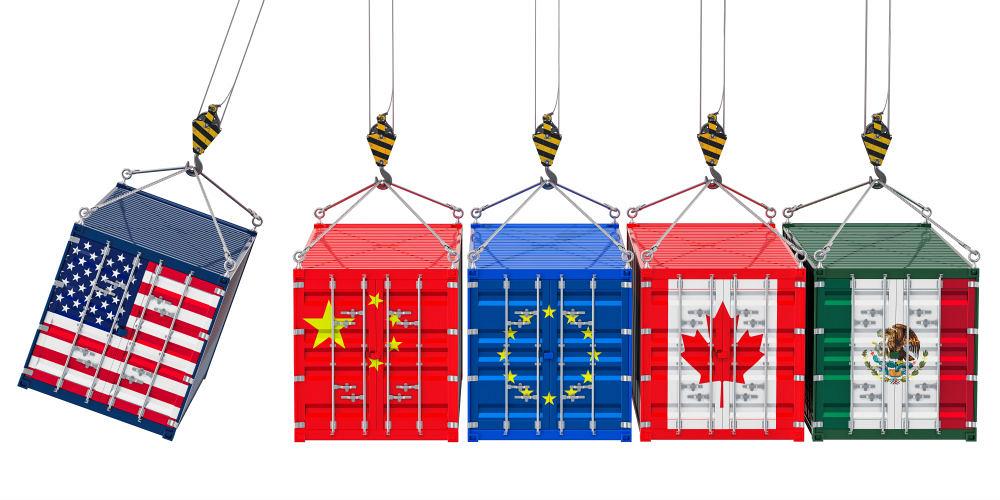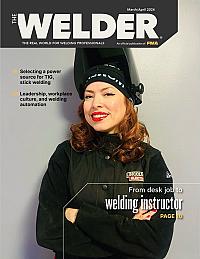Sr. Digital Editor
- FMA
- The Fabricator
- FABTECH
- Canadian Metalworking
Categories
- Additive Manufacturing
- Aluminum Welding
- Arc Welding
- Assembly and Joining
- Automation and Robotics
- Bending and Forming
- Consumables
- Cutting and Weld Prep
- Electric Vehicles
- En Español
- Finishing
- Hydroforming
- Laser Cutting
- Laser Welding
- Machining
- Manufacturing Software
- Materials Handling
- Metals/Materials
- Oxyfuel Cutting
- Plasma Cutting
- Power Tools
- Punching and Other Holemaking
- Roll Forming
- Safety
- Sawing
- Shearing
- Shop Management
- Testing and Measuring
- Tube and Pipe Fabrication
- Tube and Pipe Production
- Waterjet Cutting
Industry Directory
Webcasts
Podcasts
FAB 40
Advertise
Subscribe
Account Login
Search
U.S. manufacturers band together to fight steel, aluminum tariffs on Mexico, Canada
More than 30 organizations send letter to U.S. Trade Representative Lighthizer to remove Trump’s controversial Section 232 tariffs
- By Gareth Sleger
- November 21, 2018
The pushback against President Donald Trump’s steel and aluminum tariffs appears to be gaining momentum.
In an open letter addressed to U.S. Trade Representative Robert Lighthizer this week, 34 U.S. organizations representing a wide variety of manufacturers – ranging from the Association of Equipment Manufacturers all the way to the Beer Institute – have called for the Trump organization to lift the tariffs specifically targeting Canada and Mexico.
The organizations site that the Section 232 tariffs significantly hinder vital trading partner relationships between the three Norther American nations. The letter also strongly opposed replacing tariffs with quotas or other limitations to circumvent the levies.
“In the end, they will only hurt our long-term economic growth and competitiveness, reduce our overall output of goods and services, negate the benefits of tax reform and raise costs for American businesses and families throughout all 50 states,” the letter states, adding that absolute quotas also place “severe supply constraints on U.S. manufacturers and created even more business uncertainly than tariffs regarding exports from these countries.”
Ever since the imposed 25 percent tariff on imported steel and 10 percent tariff on aluminum were announced in early March, metal fabrication companies and associations alike voiced disapproval. And when the tariffs were expanded to Mexico and Canada in June via Section 232, the two allies responded with implementing their own steel and aluminum tariffs worth about $15 billion.
“That's where the 232 exemptions come in,” said Chris Kuehl, co-founder and managing director of Armada Corporate Intelligence, and economic analyst for the Fabricators & Manufacturers Association Intl. “Some people are getting the exemptions, and some aren't. That doesn't create a level playing field.”
The letter comes in the wake of the recent G20 Summit in Argentina, where negotiations transpired over replacing the longstanding North American Free Trade Agreement (NAFTA) with the newly proposed United States-Mexico-Canada Agreement (USMCA), aka NAFATA 2.0.
While signature and ratification are still pending for USMCA, which, for example, could incentive more domestic production of automobiles, the 34 organizations that signed the anti-Section 232 letter believe these tariffs fly in the face of what the pending trade agreement is attempting to accomplish.
“USMCA provides a chance for all sectors of the U.S. economy, including manufacturing, agriculture, services and technology, to benefit from continued regional economic integration, higher North American standards and enhanced regulatory cooperation. Tariffs on imports of steel and aluminum are entirely inconsistent with the overall goals of the USMCA,” the letter states.
But there does seem to be some evidence of progress. Also this week, Reuters reported that Geronimo Gutierrez, ambassador of Mexico to the United States, expects the U.S. to begin lifting the tariffs against Mexico by the end of the year.
However, it’s not clear whether the tariffs will also be lifted against Canada, which has continued its own efforts to rail against Section 232.
Read the full letter below:
Dear Ambassador Lighthizer:
The undersigned organizations represent a broad array of U.S. manufacturers, retailers, technology companies, farmers and agribusinesses, and other supply chain stakeholders. We are writing to express our strong recommendation that the Section 232 tariffs, which have been in place with respect to steel and aluminum imports from Canada and Mexico since June 1, 2018, be removed.
These tariffs, which significantly affect our relationships with our most important trading partners, should be removed for a number of reasons:
- First, the recent conclusion of the negotiations for the U.S.-Mexico-Canada Agreement (USMCA), provides a chance for all sectors of the U.S. economy, including manufacturing, agriculture, services and technology, to benefit from continued regional economic integration, higher North American standards and enhanced regulatory cooperation. Tariffs on imports of steel and aluminum are entirely inconsistent with the overall goals of the USMCA.
- Second, the USMCA already requires that a certain amount of steel and aluminum of North American origin be used in automotive production in order for the resulting vehicles to be compliant with the rules of origin under the agreement.
- Third, Section 232 tariffs on steel and aluminum (and the related absolute import quotas) have caused significant harm to American manufacturers, consumers and workers. They have raised costs significantly for a wide array of industries – including autos, machinery and equipment, chemicals, energy production, construction, medical devices, food products and household goods. This endangers the jobs of millions of workers in those industries, who collectively represent a far greater share of the American workforce than those who benefit from the restrictions. Many manufacturing industries rely on imported inputs to produce goods competitively in the United States. The tariffs raise the costs of manufacturing in the U.S. and place our manufacturers at a competitive disadvantage with respect to finished products which are made outside of the U.S. and imported without being affected by the tariffs. Further, consumers are starting to feel the pinch of higher prices across the board, as evidenced by recent increases in the CPI. Using economic models, economists have correctly predicted these effects, and have warned that the effects will only deepen over time.
- Fourth, the continuation of these tariffs with respect to Mexico and Canada will create impediments to Congressional passage of the USMCA implementing bill given concerns expressed by members of Congress about the use of these tariffs with respect to our two closest allies. The business community supports the removal of this potential impediment to Congressional approval of the USMCA.
- Finally, Canada and Mexico have responded to these tariff actions and have imposed billions in tariffs on U.S. exports in response. These retaliatory measures, which many of us predicted, target a broad range of U.S. exports, including agricultural and chemical products. They are hurting American exporters, putting additional American jobs at risk and further harming our global competitiveness in some of our most successful export sectors.
Tariffs are taxes, both those imposed by the Administration and those our trading partners apply. In the end, they will only hurt our long-term economic growth and competitiveness, reduce our overall output of goods and services, negate the benefits of tax reform and raise costs for American businesses and families throughout all 50 states.
It is our understanding that the Administration is giving consideration to the idea of removing the steel and aluminum tariffs for Mexico and Canada but replacing them with the type of absolute quota regimes that are currently in place for South Korea, Brazil and Argentina (for steel) and Argentina (for aluminum). We strongly oppose this plan. Absolute quotas administered in the way that has been used with respect to imports from these countries have placed severe supply constraints on U.S. manufacturers and created even more business uncertainly than tariffs regarding exports from these countries.
We recognize that there are significant problems with overcapacity in the steel and aluminum sector caused mainly by Chinese subsidies and state-owned activities. We strongly support appropriate measures to deal with this problem more effectively, including continued application of our unfair trade laws to Chinese exports and negotiation of global arrangements to deal with overcapacity. However, imposition of national security restrictions on our North American partners should not be part of that solution.
For all the reasons outlined above, it is time to remove the Section 232 tariffs imposed on steel and aluminum exports from Canada and Mexico and allow the U.S. to realize the potential benefits of the USMCA. Our industries want to support this new agreement when it faces Congressional review, but that depends heavily on having an overall package that benefits, rather than harms, our long-term ability to survive in a global economy. We strongly urge you to take these concerns into account and to remove these restrictions prior to signing the final USMCA.
Sincerely,
Alliance of Automobile Manufacturers
American Automotive Policy Council
American Beverage Association
American Chemistry Council
American Exploration & Production Council
American Wind Energy Association
Associated Equipment Distributors
Associated General Contractors of America
Associate of Equipment Manufacturers
Association of Global Automakers
Auto Care Association
Beer Institute
Car Manufacturers Institute
Coalition of American Metal Manufacturers and Users
Flexible Packaging Association
Freedom Partners Chamber of Commerce
Grocery Manufacturers Association
Hands-On Science Partnership
Industrial Fasteners Institute
Midwest Food Products Association
Motor & Equipment Manufacturers Association
National Automobile Dealers Association
National Foreign Trade Council
National Pork Producers Council
National Retail Federation
National Tooling and Machining Association
North American Die Casting Association
Precision Machined Products Association
Precision Metalforming Association
Shelf-Stable Food Processors Association
Specialty Equipment Market Association
Truck and Engine Manufacturers Association
U.S. Chamber of Commerce
World Trade Center Kentucky
cc:
Honorable Wilbur Ross, Secretary of Commerce
Honorable Orrin G. Hatch, Chairman, Senate Committee on Finance
Honorable Ron Wyden, Ranking Member, Senate Committee on Finance
Honorable Kevin Brady, Chairman, House Committee on Ways and Means
Honorable Richard Neal, Ranking Member, House Committee on Ways
subscribe now
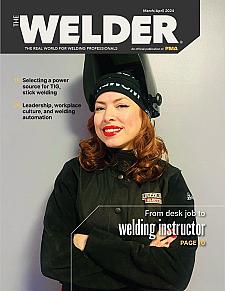
The Welder, formerly known as Practical Welding Today, is a showcase of the real people who make the products we use and work with every day. This magazine has served the welding community in North America well for more than 20 years.
start your free subscriptionAbout the Author

About the Publication
- Stay connected from anywhere

Easily access valuable industry resources now with full access to the digital edition of The Fabricator.

Easily access valuable industry resources now with full access to the digital edition of The Welder.

Easily access valuable industry resources now with full access to the digital edition of The Tube and Pipe Journal.
- Podcasting
- Podcast:
- The Fabricator Podcast
- Published:
- 04/16/2024
- Running Time:
- 63:29
In this episode of The Fabricator Podcast, Caleb Chamberlain, co-founder and CEO of OSH Cut, discusses his company’s...
- Trending Articles
Sheffield Forgemasters makes global leap in welding technology
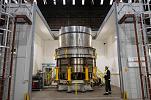
ESAB unveils Texas facility renovation

Engine-driven welding machines include integrated air compressors

How welders can stay safe during grinding

The impact of sine and square waves in aluminum AC welding, Part I
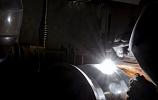
- Industry Events
16th Annual Safety Conference
- April 30 - May 1, 2024
- Elgin,
Pipe and Tube Conference
- May 21 - 22, 2024
- Omaha, NE
World-Class Roll Forming Workshop
- June 5 - 6, 2024
- Louisville, KY
Advanced Laser Application Workshop
- June 25 - 27, 2024
- Novi, MI
























